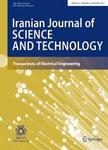版权所有:内蒙古大学图书馆 技术提供:维普资讯• 智图
内蒙古自治区呼和浩特市赛罕区大学西街235号 邮编: 010021

作者机构:Univ Malaya Fac Comp Sci & Informat Technol Dept Comp Syst & Technol Kuala Lumpur Malaysia Univ Malaya Fac Comp Sci & Informat Technol Dept Artificial Intelligence Kuala Lumpur Malaysia
出 版 物:《IRANIAN JOURNAL OF SCIENCE AND TECHNOLOGY-TRANSACTIONS OF ELECTRICAL ENGINEERING》 (Irn. J. Sci. Technol. Trans. Electri. Eng.)
年 卷 期:2022年第46卷第4期
页 面:989-1004页
核心收录:
主 题:Problem-based learning Serious games 3D computer graphics Educational games
摘 要:This study was an attempt to realize the possible effects of a problem-based serious game, named Immersivio , on learning 3D computer graphics to mitigate the challenges undergraduate students have in learning 3D computer graphics in Malaysia. Indeed, the literature shows that 3D computer graphic courses are replete with abstract notions and algorithmic concepts which make the learning of it difficult. To this end, the researcher designed a quantitative study with a between-subject design and aimed at implementing a treatment course using the problem-based SG. Before that, a problem-based SG was designed by considering principles of problem-based learning (i.e. higher-order thinking, collaborative learning, and cognitive thinking) and serious games (playing for learning). The problem-based model presented by Hmelo-Silver was used as the basis of the game design (Hmelo-Silver and Eberbach 2012). A non-random sampling procedure (quota sampling) was used in this quasi-experimental study, and the participants formed 2 groups, i.e. the experimental group (n = 24) and the control group (n = 26). The independent samples t-test results indicated that the experimental group s post-test scores in a 3D computer graphics course were significantly affected as a result of using Immersivio. This study and the game design in this study can have pedagogical and practical implications for 3D computer graphics lecturers and those who are interested in designing effective problem-based SGs.